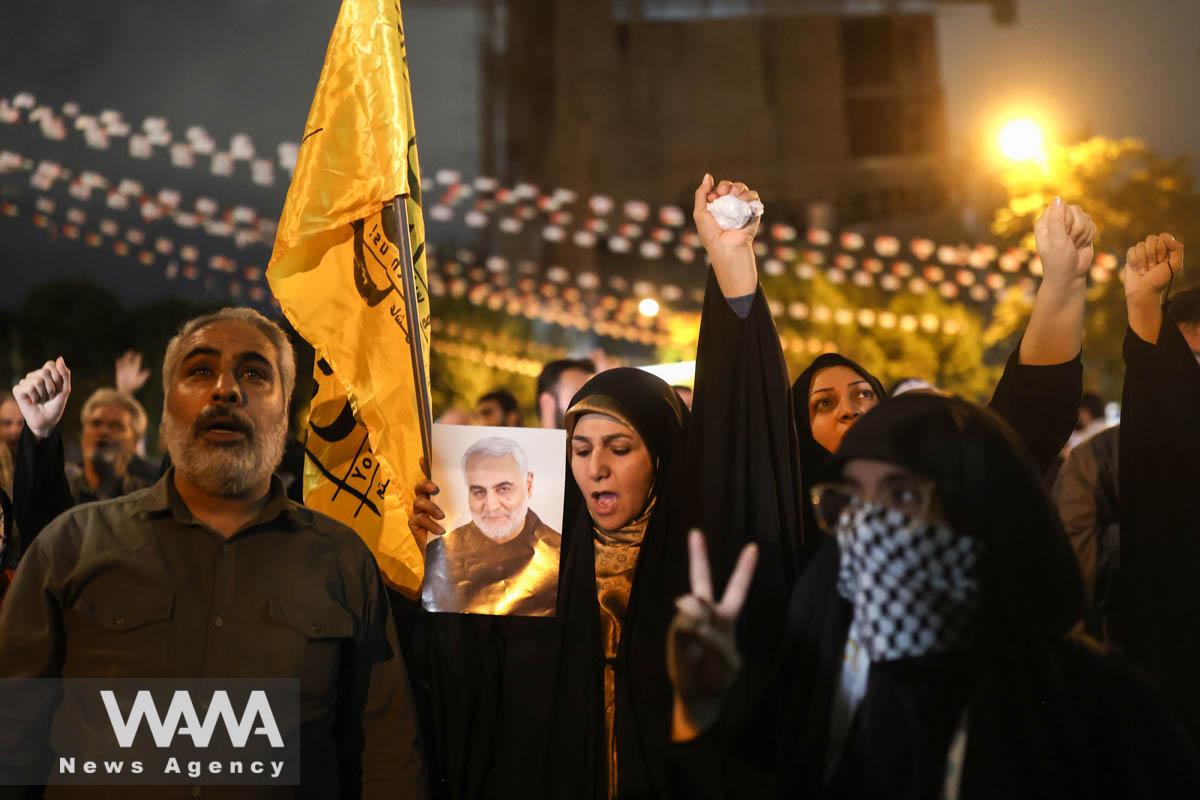Strategic Patience or Direct Confrontation? The Dilemma of Iran’s Foreign Policy
WANA (Oct 01) – In recent years, Iran has adopted a policy of “strategic patience” in response to international and regional pressures. This approach, based on avoiding quick and direct reactions to the actions of its adversaries, seems to have reached a critical point as tensions and threats intensify.
The key question is whether Iran will continue adhering to this approach, or whether changes in the international and regional environment will force the country to reconsider its policy.
Iran’s Approach to Nuclear Negotiations: Diplomatic Play or Opportunism?
Statements by Seyed Abbas Araghchi, Iran’s Deputy Foreign Minister, regarding Iran’s readiness to resume nuclear talks with the West signal a potential opening in the country’s foreign policy.
However, Araghchi emphasized that increasing regional tensions, particularly with Israeli interference, challenges this process.
Iran’s approach to negotiations is part of its effort to maintain a balance between regional and diplomatic pressures. At this stage, Iran seeks to preserve its position by balancing against the West, avoiding escalation, and maintaining its strategic stance.

Iran Must Acquire Nuclear Weapons
WANA (Sep 30) – In light of the ongoing massacre of Gaza and Lebanon by the Israeli regime, a serious question has emerged in public discourse: Is it not time for Iran to acquire nuclear weapons? Israel, which has long been armed with nuclear weapons, feels no limitations in its actions. The genocide in […]
Regional Threats: Factors That Could Alter Iran’s Policy
The likelihood of a shift in Iran’s policy depends on several key factors. First, the increase in direct threats to Iran’s strategic interests might compel Tehran to take more decisive action. The continued military attacks by Israel, which increase pressure on Iran and its allied groups, are a significant factor.
If Iran perceives that its influence and national security are at risk, there is a possibility of a policy shift—one that could push Iran toward direct military confrontation with Israel and possibly the U.S.
On the other hand, recent statements by Hezbollah and reactions from the “Resistance Axis” show that these groups still rely on Iran as their main supporter in the fight against Israel. In this context, Iran’s strong support for Hezbollah and other resistance groups remains central. Recent developments on the battlefield could pave the way for harsher responses from the resistance axis, led by Iran.
Resistance and Reluctance for Direct War: Contradiction or Strategy?
By openly supporting resistance groups in Lebanon and Palestine, Iran has clearly demonstrated its willingness to act indirectly against Israel. This support is evident not only at the military level but also diplomatically and morally.
However, Iran has repeatedly stated that it will not engage in a large-scale regional war. What seems to be a contradiction—military and diplomatic support alongside an avoidance of direct war—is actually part of Iran’s complex strategy. Through proxy forces, Iran seeks to curtail Israeli actions without directly engaging in a broader war that could have unpredictable consequences.

Demonstrators chant during an anti-Israel protest following an Israeli strike on Lebanon, in Tehran, Iran, September 28, 2024. Majid Asgaripour/WANA (West Asia News Agency)
Balancing Regional Tensions and International Diplomacy
The recent attacks on American bases in Deir ez-Zor and Hasakah send a clear message from Iran and the Resistance Axis to the U.S. and its allies: Netanyahu’s efforts to push the region toward war will ultimately harm American interests.
By continuing its policy of “strategic patience” and avoiding direct warfare, Iran aims to control the situation. However, this policy could shift in response to ongoing Israeli attacks and tensions in Gaza and Lebanon. Should Iran perceive a serious threat, it may resort to more decisive actions.
Iran’s Position in the New Global Order: A Strategic Shift or Continuation of the Same Path?
The formation of Iran’s 14th government and the improvement of its domestic atmosphere have created an opening for changes in foreign policy. Iranian policymakers now face significant challenges—on one side, Netanyahu’s warlike maneuvers and Israel’s threats, and on the other, the need to maintain diplomatic relations with the West.

Ayatollah Khamenei: “Zionists Too Weak to Harm Hezbollah”
WANA (Sep 28) – Ayatollah Khamenei, the Leader of the Islamic Revolution of Iran, has issued an important message concerning the recent events in Lebanon. The text of the message is as follows: In the Name of God, the Compassionate, the Merciful On the one hand, the killing of defenseless civilians in Lebanon, […]
Meanwhile, the U.S. under President Joe Biden seeks to prevent a war, especially given Biden’s focus on avoiding geopolitical instability.
As Iran’s Supreme Leader emphasized in recent messages related to Israel’s attack on Lebanon and the assassination of Seyyed Hassan Nasrallah, Iran remains committed to supporting resistance and ensuring regional security.
However, if tensions persist and Netanyahu’s actions escalate, Iran’s “strategic patience” policy may undergo serious revisions and transform into a new strategy to confront regional threats.













